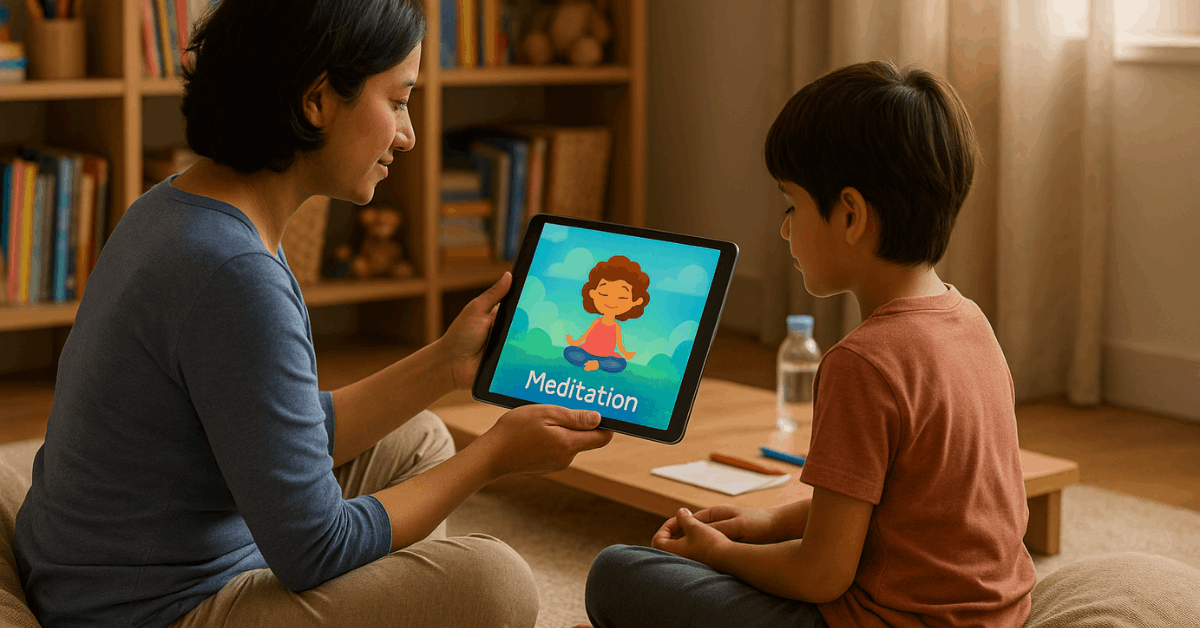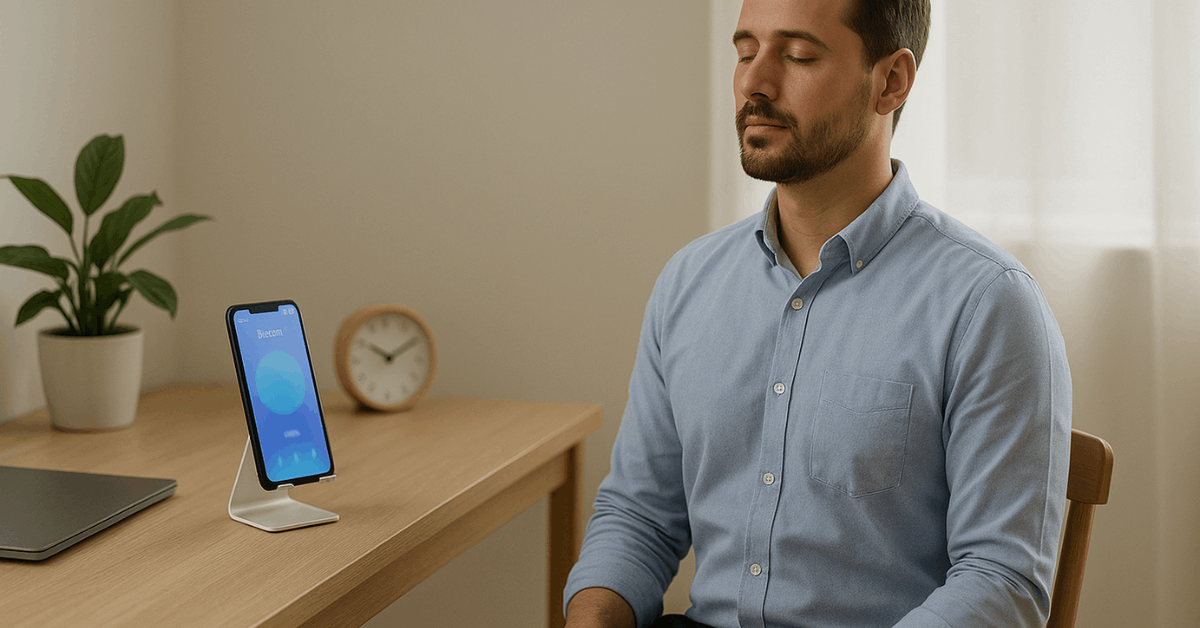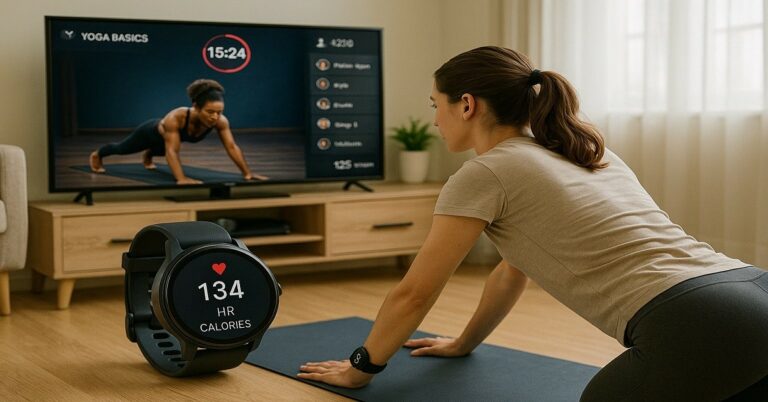Stress management improves when guidance, accountability, and consistent practice live on your phone.
The Best Meditation Apps combine evidence-based programs, simple navigation, and options for every level, from one-minute breath resets to deeper courses.
Research indicates mindfulness and meditation can reduce symptoms of anxiety, stress, and insomnia, though results vary by program and person.

How This Guide Chose Winners
Selection centered on clear, research-grounded methods; expert involvement; breadth of content (guided, timers, sleep, music, courses); and honest value.
Accessibility matters, so each pick notes device support, free tiers, and real-world prices verified on official pages as of 2025. Privacy and safety also factored in by favoring apps that state how content is created and coached.
Top Picks and Who Each Suits
Reliable choices meet users where they are: novices, busy parents, shift workers, or seasoned practitioners. Expect straightforward onboarding, short sessions for hectic days, and longer tracks for deep practice.
Each mini-review highlights platforms, standout features, ideal users, and current pricing to help narrow decisions quickly. Personal fit still decides the winner; trial periods help you validate habits before paying.
Headspace — Most Comprehensive
Expect a polished interface with hundreds of guided sessions spanning stress relief, focus, sleep, and mindful movement.
Daily plans adapt across morning, afternoon, and evening, while SOS meditations target spikes like overwhelm or late-night wakeups. Platforms: iOS and Android.
Pricing: 7-day free trial (monthly), 14-day free trial (annual), then $12.99/month or $69.99/year; Family Plan covers up to six people for $99.99/year; Student Plan $9.99/year. Headspace+4Headspace+4Headspace+4
Ten Percent Happier (Happier) — Best for Beginners
Clear instructions and short, approachable practices make this a strong mindfulness app for beginners. Lessons pair brief “Learn” videos with guided sessions; live talks and podcasts reinforce concepts between sessions.
Platforms: iOS and Android. Pricing: free to download with 50+ free meditations and several free courses; full subscription $99.99/year, 7-day trial available. meditatehappier.com
Calm — Best for Sleep
Sleep stories, soundscapes, and concise meditations anchor Calm’s bedtime toolbox. Celebrity-narrated stories plus mood check-ins help unwind quickly; focus music and brief day breaks round out the library.
Platforms: iOS and Android. Pricing: $14.99/month, $69.99/year, or $399.99 lifetime; 7-day free trial offered. Evidence for mindfulness and sleep is mixed but promising, so we will evaluate the impact after several weeks. Apple+1
Insight Timer — Best Budget
A massive free library makes Insight Timer one of the strongest free meditation apps. Filters cover stress, sleep, self-esteem, pain relief, and kids; custom timers support unguided practice; live events and community groups sustain motivation. Platforms: iOS and Android.
Pricing: free core access; Member Plus $59.99/year or $9.99/month adds courses, offline downloads, and advanced tools. The company now advertises “250,000+” free tracks across meditations and music. Insight Timer Support+1
Buddhify — Best Guided on a Budget
A simple “wheel” interface routes directly to guided meditation app categories like Waking Up, Work Break, Stress, and Can’t Sleep. Sessions feel targeted and easy to start during short gaps.
Platforms: iOS and Android. Pricing: paid download—about $4.99 on iOS and $2.99–$3.99 on Android; optional membership $30/year unlocks extra content. Buddhify+1
Breathwrk — Best for Breathing Techniques
Structured breath classes teach calming, energizing, and sleep protocols that also function off-app—ideal when screens aren’t available. Short drills support quick resets; longer classes build capacity.
Platforms: iOS and Android. Pricing: Pro Monthly $12.00; Pro Annual roughly $5.75/month billed annually (7-day trial). Breathwrk
Smiling Mind — Best for Kids and Families
Psychologist-developed programs span ages and stages, from playful one-minute practices to teen and adult tracks.
Family-friendly activities encourage mindful eating, listening, and sport readiness—useful for classrooms or home routines. Platforms: iOS and Android. Pricing: free. Smiling Mind+1
Key Evidence on Meditation and Stress Relief
Large reviews suggest mindfulness programs can reduce anxiety and stress and may help with depression; sleep benefits appear modest to moderate and vary by method and population.
One randomized trial even found mindfulness-based stress reduction noninferior to escitalopram for anxiety disorders, reinforcing its role as a legitimate option under professional guidance.
Use apps as self-care tools, not replacements for clinical treatment.

How to Choose the Right Meditation App
Picking an app gets easier once goals, device limits, and budget are clear. Short, steady sessions beat marathon sits for habit formation, so prioritize features that make consistency simple.
Trials help test accountability, personalization, and sleep content before committing to a plan. The factors below cover the essentials for most users.
- Meditation app pricing: Confirm monthly versus annual costs, family or student discounts, and what free tiers actually include.
- Personalization and tracking: Look for mood logs, check-ins, streaks, and recommended sessions that match stressors and time windows.
- Formats that fit life: Prioritize features needed most—sleep meditation stories, timers, breathing exercises app tools, or live classes.
- Quality signals: Favor programs authored or reviewed by clinicians and experienced teachers; treat big claims cautiously and lean on trials to judge impact.
- Kids or school needs: Families benefit from dedicated meditation for kids tracks and simple app layouts that encourage autonomy.
FAQs
Clear answers reduce friction and help set realistic expectations for progress and cost. Evidence points to benefits, but outcomes depend on consistency, fit, and complementary routines like exercise and sleep hygiene.
Treat app metrics as guides, not judgments.
- How do meditation apps work?
Apps provide structured audio guidance, timers, background sound, and behavioral nudges such as streaks, reminders, and check-ins. Programs may follow mindfulness-based stress reduction or related protocols adapted to short, daily sessions. - What are the benefits of using a meditation app?
Regular practice can reduce perceived stress and anxiety and may improve sleep and mood. Digital prompts increase adherence, and short track lengths lower the barrier to entry on busy days. - Are meditation apps worth it?
Value depends on consistency and feature match. Free tiers (for example, Insight Timer) let habits form before upgrading; paid plans add courses, offline use, and advanced tools. - Is 15 minutes a day enough?
Brief daily practice often helps; meta-analyses show symptom improvements with modest weekly totals. Begin with five to ten minutes, then extend as tolerance and interest grow. - Are any completely free?
Yes. Smiling Mind is fully free; Insight Timer’s core library is also free, with optional Member Plus upgrades.
Methodology and Review Standards
Recommendations synthesize official product pages, publisher help centers, and respected health sources for effectiveness claims.
Prices and plan details were checked on developer sites or app-store listings on October 21, 2025. Evidence references emphasize governmental and academic summaries to reflect current consensus and known limits in mindfulness research.
Conclusion
Stress relief improves when tools are credible, simple, and available every day. Set a clear goal, better sleep, fewer anxiety spikes, or sharper focus, and choose one app that matches it.
Start with 5–10 minute sessions, schedule reminders, and track how mood and sleep change over two weeks.
Use trials to evaluate cost and features, then commit to the platform that supports consistent practice. Seek clinical care for persistent insomnia, severe anxiety, or depressive symptoms; apps complement professional treatment rather than replace it.











